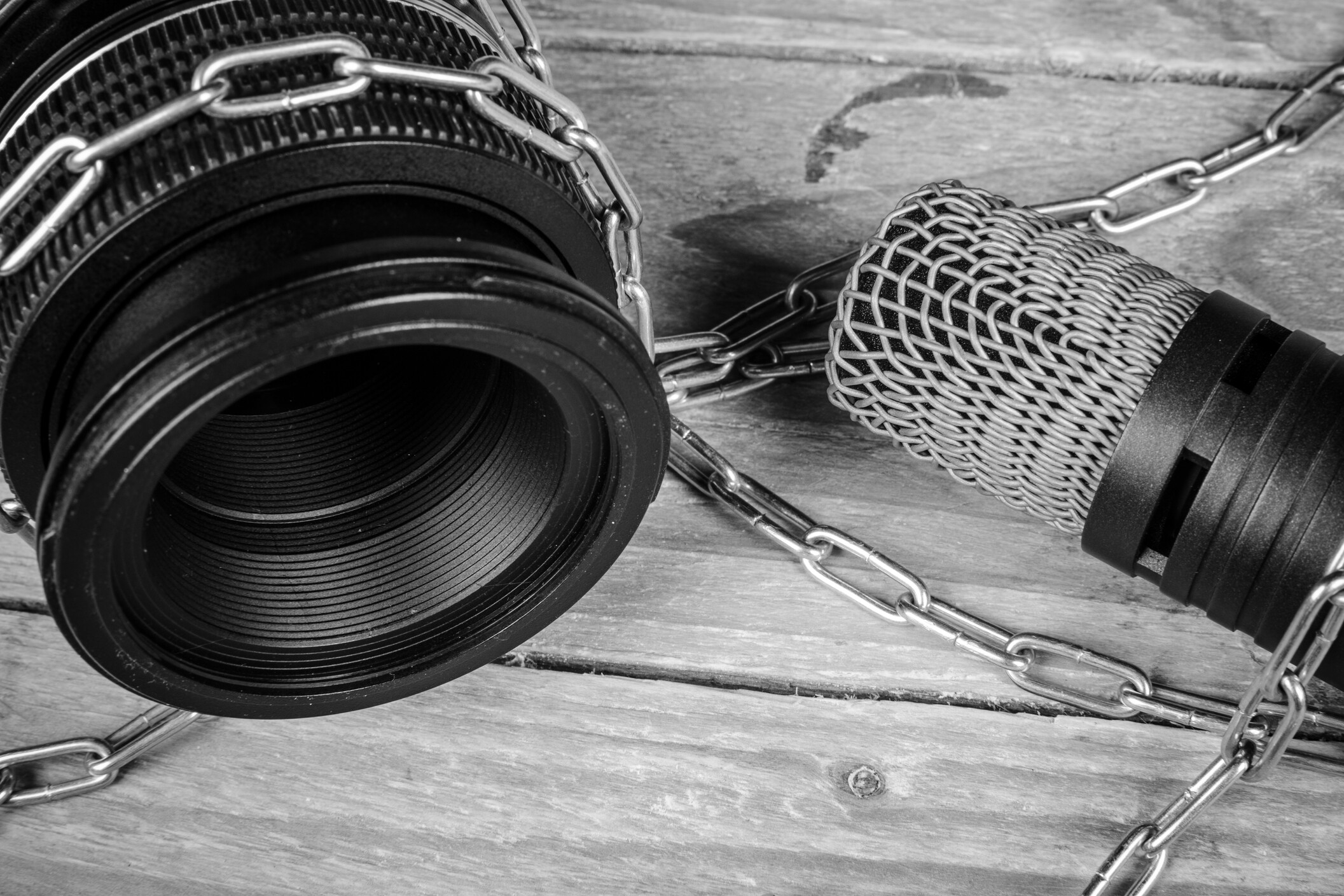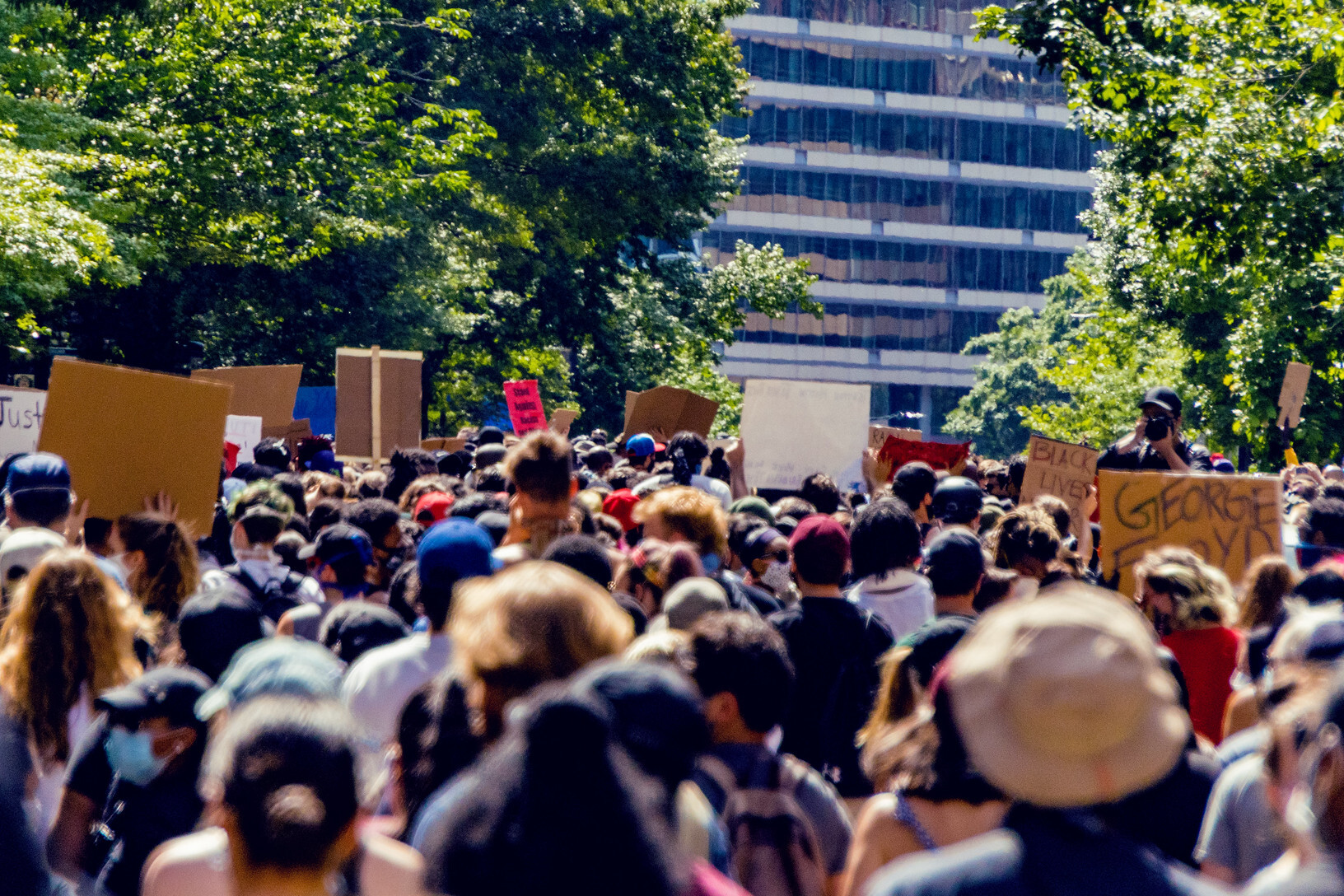The Public Media Alliance condemns attacks on journalists and media workers from South Africa’s public broadcaster during nationwide protests. It is imperative that journalists are able to conduct their work freely and safely.
Violent protests and looting have occurred across several parts of South Africa since former President Jacob Zuma was imprisoned on 7 July. He is due to serve a 15-month prison sentence for failing appear before the State Capture Inquiry that has been investigating corruption allegations during his tenure. There have been a growing number of deaths and arrests during the protests as pro-Zuma supporters call for his release.
According to an SABC report, a news crew had their equipment stolen at gunpoint while covering a protest in Alexandra, a town north of Johannesburg, on 11 July. Phathiswa Magopeni, SABC’s Editor-in-Chief and Group Executive for News and Current Affairs, explained that a live unit, camera, tripod stand, two mobile phones, cables and other broadcasting equipment were taken from the SABC journalists who were still “traumatised” from the incident.
Magopeni also drew attention to the “editorial harassment” and “cyber-bullying” that has been taking place online. “There is an expectation that we should deviate from our independence and impartiality in the way we report and follow preferred lines by whoever wants that done… There is a particular way that [as] a public news service, we are expected to report.
“So, what we see happening on the ground is exactly a translation of what has been happening online… When you see things like this, it becomes a huge problem because it means that our ability to do our work is hindered and this inhibits the free flow of information, which works for any democracy. We all know, as journalists… in the dark, democracy dies. It becomes a problem when we have to… protect journalists by saying that situation is volatile and therefore we cannot put your life at risk. No story is worth any journalist’s life.”
“No story is worth any journalist’s life…” – Phathiswa Magopeni, SABC Editor-in-Chief and Group Executive for News and Current Affairs
Municipal elections are due to take place in October. Violent protests have often transpired in previous elections. Alongside providing protective gear for journalists, Magopeni also aims to engage more with communities in an attempt to provide greater protections for journalists so that they can do their jobs without fear of harassment or intimidation.
An SABC political journalist was also reportedly “slapped and strangled” by a pro-Zuma supporter on 3 July, while covering a gathering outside of the former president’s house in the rural town of Nkandla.
Another report revealed that journalists from other media organisations, including News24 and Newzroom Afrika, have also been victims of attacks.
Other media freedom advocates have also condemned the violence against journalists. The South African National Editors’ Forum (SANEF) wrote in a statement that the recent attacks will “leave a bitter taste in the mouths of journalists and editors, who assigned teams to cover the violent protests… Journalists must be allowed to report and encouraged to report all news incidents, without being intimidated or threatened, while remaining vigilant.’ They added, ‘Our media houses are sending their journalists out daily, at the risk of violent attacks and contracting Covid-19, as they recognise the media’s role in our constitutional democracy.’
William Bird, Director of Media Monitoring Africa, tweeted: “Violence begets violence. We need our leaders regardless of party or faction to clearly and unambiguously condemn attacks on journalists and act on those responsible.”
SABC’s non-executive Board Director, Michael Markovitz also tweeted his support to SABC reporters and video journalists “who have been unfailingly bringing us the news…” despite the violence and looting.
Violence begets violence. We need our leaders regardless of party or faction to clearly and unambiguously condemn attacks on journalists and act on those responsible. https://t.co/Obp1fIeuIh
— William Bird (@Billbobbird) July 12, 2021
Header Image: South African Broadcast Corporation (SABC) Television Park in Auckland Park, Johannesburg. Credit: THEGIFT777/iStock
Related Posts
11th January 2021
The increasing threats to journalists’ safety
In this commentary article published in…
8th June 2020
Staying Safe: Tools and resources for reporting on protests
Updated Amid the challenges of…


